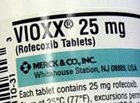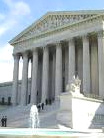| A major U S AIDS treatment group plans to file a lawsuit today that accuses drug giant Pfizer Inc. of illegally promoting recreational use of its impotence pill Viagra. The AIDS Healthcare Foundation told Reuters it wants Pfizer to be barred from marketing Viagra as a lifestyle or sexual enhancement drug. The nonprofit organization said Pfizer's actions had led to risky behavior by men and an increase in HIV and other sexually transmitted diseases. "Pfizer has created and contributed to the perception of Viagra as a safe, sexy, lifestyle, recreational drug, to be frequently used regardless of the degree, or even existence of" erectile dysfunction, the group said in draft legal documents. Pfizer, the world's largest drug maker, said it was committed to appropriate Viagra use and urged men to see a doctor for a proper diagnosis. The drug is sold by prescription. The AIDS Healthcare Foundation, in its legal arguments, pointed to several Viagra promotions from recent years, including a 2005 newspaper ad that featured a smiling man asking, "What are you doing on New Year's Eve?" Another ad that ran near the 2006 Super Bowl urged men to "Be this Sunday's MVP" and ask their doctors about Viagra. Pfizer's Viagra website asks readers, "Want to improve your sex life?" and says the drug can help men who have erection difficulties "once in a while." Healthcare foundation president Michael Weinstein said the promotions made Viagra sound like a "party drug" that can make sex more pleasurable for healthy men -- a claim the Food and Drug Administration has not approved. Men in the ads also look much younger than Pfizer's earlier Viagra pitchman, former Kansas Senator Bob Dole, who is now 83, he said. "Bob Dole has been replaced by the hunky 40-something guy who looks like he can really have a good time," Weinstein said in an interview. "The message they are sending out is that any and every male should take it," he said. Studies show evidence of recreational Viagra use among men who have sex with men, sometimes to overcome the erection-inhibiting effects of alcohol or street drugs such as ecstasy and crystal methamphetamine, the AIDS Healthcare Foundation said. The group asked Pfizer repeatedly to alter its ads, Weinstein said. In 2004, the FDA objected to a television commercial suggesting Viagra could return a man to the "wild thing" of his younger days. The FDA said the ad, showing a man sprouting devilish horns, made an unproven claim that men could regain a youthful level of sexual desire. Pfizer halted that campaign. The AIDS Healthcare Foundation's lawsuit, to be filed in Los Angeles Superior Court, asks that Pfizer be prohibited from running similar messages and ordered to fund awareness ads about sexually transmitted disease risks and Viagra. The suit also requests that Pfizer turn over profits gained from misleading ads and pay the AIDS Healthcare Foundation's costs of treating AIDS and other illnesses linked to Viagra use. California-based AIDS Healthcare Foundation runs AIDS clinics in the United States, Africa, Latin America, the Caribbean, and Asia that provide medical care and services to more than 53,000 people even if they cannot pay. Pfizer spokeswoman Shreya Prudlo said the company was not aware of the lawsuit. She said Pfizer "has always been committed to safe and appropriate use of Viagra" and that the drug's label and promotions stated "Viagra does not protect against sexually transmitted diseases, including HIV." Sales of Viagra, known generically as sildenafil, reached $1.6 billion worldwide in 2005. |







